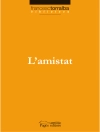Hegel and Schelling in Early Nineteenth-Century France is a two-volume work that documents the French reception of G. W. F. Hegel and F. W. J. Schelling from 1801 to 1848. It shows that the story of the ‘French Hegel’ didn’t begin with Wahl and Kojève by giving readers a solid understanding of the various ways in which German Idealism impacted nineteenth-century French philosophy, as well as providing the first ever English-language translations of excerpts from the most important philosophical texts of the era.
Inside volume two, readers will find a series of scholarly studies to help them get to grips with this neglected field in the history of ideas. The contributors are world-leading and emerging experts from Europe, UK, and North America. They highlight the stakes and trace the pathways of this reception for French and German thought during the period, including the ways in which French philosophers of the period took up the debates and concepts of German Idealism, transformed them or rejected them. In this way, the volume aims to redress the serious neglect of early nineteenth-century French thought in English-language scholarship and, in so doing, goes beyond a nation-based narrative of the history of philosophy.
Figures covered in the volumes include major philosophers such as Cousin, Leroux, Proudhon, Quinet, Ravaisson, Renouvier and Véra, as well more neglected figures, like Barchou de Penhoën, Bénard, Lèbre, Lerminier, Pictet, and Willm.
Tabella dei contenuti
1. Cousin’s and Leroux’s Antagonistic Visions of German Idealism (Lucie Rey).- 2. Becoming Cousin: Eclecticism, Spiritualism and Hegelianism before 1833 (Daniel Whistler).- 3. Ravaisson after Schelling: Purposiveness without Purpose in Genius and Habit (Mark Sinclair).- 4. Line, Vine, and Grace: Ravaisson’s Spiral and Schelling’s Vortex (Ben Woodard).- 5. “Naturism” in place of Idealism: Henri Ducrotay de Blainville and Auguste Comte on Naturphilosophie (Laurent Clauzade).- 6. Pierre-Joseph Proudhon and the Reception of German Philosophy in Mid-Nineteenth-Century France (Edward Castleton).- 7. Pantheism and the Dangers of Hegelianism in Nineteenth-Century France (Kirill Chepurin).- 8. Hegel’s Aesthetics in Nineteenth-Century France: Charles Bénard’s Translation and its Reception (Élisabeth Décultot).- 9. Augusto Vera’s Mystical Conception of Hegelianism (Andrea Bellantone).- 10. Charles Renouvier, Modern French Philosophy, and the Great Learned Men of Germany (Jeremy Dunham).
Circa l’autore
Kirill Chepurin is is a postdoctoral fellow at the Maimonides Centre for Advanced Studies, University of Hamburg. He is the co-editor (with Alex Dubilet) of Nothing Absolute: German Idealism and the Question of Political Theology
Adi Efal-Lautenschläger isteaches at the University of Tel Aviv, Bar-Ilan University and the Beit Berl Academic College. Efal is the author of Figural Philology and Habitus as Method, has translated Felix Ravaisson’s Essay on Stoicism and is preparing a Hebrew translation of Ravaisson’s Of Habit as well as a monograph on Ravaisson’s philosophy of art.
Daniel Whistler is Professor of Philosophy at Royal Holloway, University of London. He has written a series of monographs on late eighteenth and early nineteenth-century philosophy, is co-editor of the Oxford Handbook of Modern French Philosophy and is currently preparing an anthology of Victor’s Cousin’s shorter writings for Oxford University Press.
Ayse Yuva is maître de conférences at Université Paris 1 Panthéon-Sorbonne, author of Tranformer le monde? L’efficace de la philosophie en temps de révolution, and co-editor of several books and articles on Franco-German philosophical transfers.












